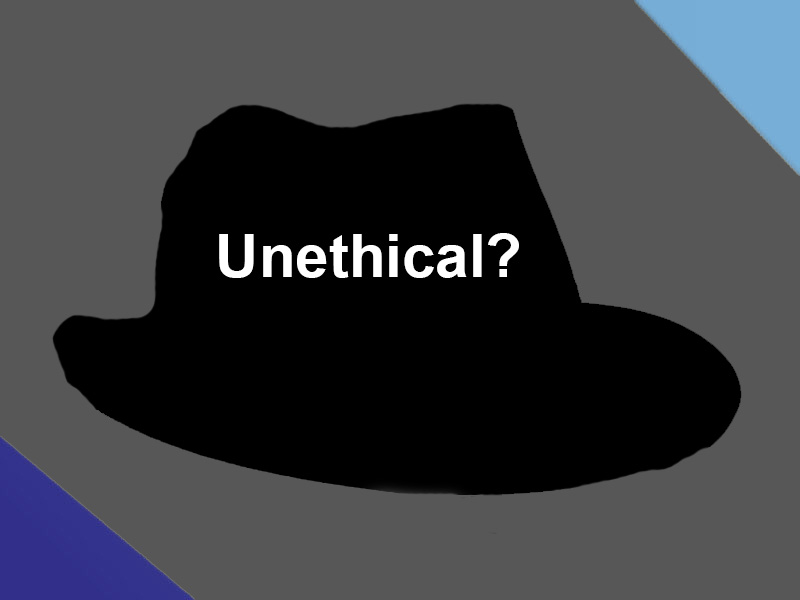Is Black Hat SEO Unethical?
Black hat SEO is sometimes referred to as “unethical SEO”, although we’ve always found this term to be a tad silly. There is no morality in following Google’s Search Essentials (formerly known as the Google Webmaster Guidelines) nor is there a morality in finding loopholes in them.
The problem with answering this question outright is that everyone has a different idea of what is and isn’t ethical. We personally don’t believe black hat SEO as a whole is unethical, however, we do believe that some black hat SEO tactics are unethical.
We’ll explain why in the rest of this article, but first, we’ll cover why others may see it as unethical.
Why Do Some People Believe Black Hat SEO Is Unethical?
Where we believe this “unethical” claim comes from are from webmasters who try their best to follow them to a T. It can be disheartening when you poor your heart into creating a website and follow the guidelines given to you only to be outranked by some guy who put together a sloppy website and used a private blog network to rank his site higher than yours in the search results.
Another source of this claim might be from people who experienced a negative SEO attack on their website, which is when someone deliberately tries to lower the rankings of another website by making the website seem like it’s using low effort black hat SEO tactics, such as by creating low quality backlinks on spam or penalised websites. We think it’s important to clarify that these tactics or not black hat SEO, they are simply negative SEO tactics designed to attack someone else’s business by taking advantage of Google’s inability to accurately tell who is using black hat SEO tactics and who isn’t. Think of it this way: if someone is hitting you with a baseball bat, you wouldn’t say they’re playing baseball, would you?
Finally, some people believe it’s unethical just because the name sounds scary and it “sounds like something a hacker would do”.
Would It Be Unethical To Use Black Hat SEO Tactics?
It depends entirely on what tactics you’re using and why you’re doing it.
What Tactics Are You Using?
- Are you spamming another person’s blog comments section with fake comments to link back to your website? Not only is this annoying, but it can create work for webmasters who have to clean up your garbage.
- Are you buying backlinks? No harm here, if you’re using money to your advantage and a website is willing to link back to yours for a price, it’s just business.
- Are you spamming links to your website across various social media websites?
Essentially, ask yourself if the tactics you’re using are adding value or not. If your tactics cause harm to or create a mess for another person or business, then we’d deem this as unethical.
Why Are You Doing It?
The “why” of this can be complex.
- Are you doing it because you think you have a great website you’ve built up that has unfair competition in the search engine results pages? There’s nothing wrong with wanting to share your genuine website with others.
- Are you doing it to spread misinformation about a person or topic? Misinformation is harmful, regardless of your reasons.
- Are you doing it to help others harm a person or business in some other way? Same as the above.
Should You Do Black Hat SEO?
Nobody can tell you if you should do black hat SEO or white hat SEO. It’s a personal decision you have to make when you do SEO based on your own values, but what we can say is that if you’re the type of person who likes to “do things the right way” or you’re scared of breaking rules, white hat SEO is for you. On the other hand, if you find yourself looking for ways to skirt the rules on a regular basis, you’ll probably find yourself reading the Google Search Essentials and thinking of any way to manipulate the guidelines given to you.
- Slow Website? Consider Robots As Being The Culprit - June 24, 2025
- My Experience Accepting Crypto Payments For The First Time - April 25, 2025
- Are Forums Dying? A Look Into Forums As A Whole - April 22, 2025


Leave a Reply